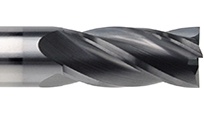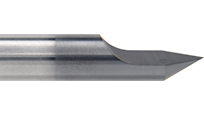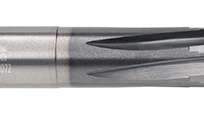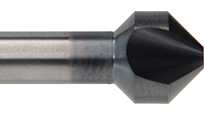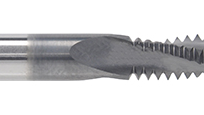CNC Lathes: Essential Machines for High-Precision Turning | Industrial-Tools UK
Essential Tools for Precision Manufacturing | Industrial-Tools UK
End Mill - Drill - Reamer
We are proud to offer the products listed in our catalogue. To help our customers experience first-hand the quality and reliability of our tools, we invite you to review our catalogue and request samples. This initiative reflects our confidence in the superior performance of our products and our commitment to customer satisfaction.
What Is a CNC Lathe?
A CNC lathe (Computer Numerical Control lathe) is a machine tool that uses a rotating workpiece and a stationary cutting tool to remove material and create parts with cylindrical symmetry. CNC lathes are controlled by a computer program that automates the cutting, shaping, and finishing processes, ensuring precision, repeatability, and high efficiency.
CNC lathes are versatile machines capable of performing a range of turning operations such as facing, grooving, drilling, tapping, and threading. These machines are used to produce parts such as shafts, pistons, spindles, cylinders, and various rotational components.
Types of CNC Lathes
There are several types of CNC lathes, each designed to suit different turning applications. Some of the most common types include:
- Horizontal CNC Lathes
- Function: Horizontal CNC lathes have a horizontal spindle that holds and rotates the workpiece. The cutting tool is positioned above the workpiece, typically along the X and Z axes.
- Applications: Horizontal CNC lathes are commonly used for large-scale production of parts that require longitudinal turning, grooving, and drilling.
- Vertical CNC Lathes
- Function: Vertical CNC lathes feature a vertical spindle that holds and rotates the workpiece. The cutting tools are positioned vertically above the workpiece, which allows for better accessibility to the part.
- Applications: Vertical CNC lathes are ideal for machining large, heavy workpieces or parts with complex geometries that require precision turning from multiple angles.
- CNC Swiss Lathes
- Function: CNC Swiss lathes are designed for high-precision, small-diameter parts. These machines utilize a sliding headstock that allows for better handling of small workpieces and higher accuracy.
- Applications: CNC Swiss lathes are used in medical device manufacturing, aerospace components, and other industries where small, intricate parts are required.
- CNC Turn-Mill Centers
- Function: CNC turn-mill centers combine turning and milling operations into one machine, allowing for complex machining and multi-tasking in a single setup. These machines are capable of turning, drilling, and milling workpieces.
- Applications: CNC turn-mill centers are ideal for industries that require highly complex parts, such as the aerospace and automotive sectors, where multiple machining processes are needed.
- CNC Slant Bed Lathes
- Function: Slant bed CNC lathes are designed with a slanted bed, which allows for better chip removal, reduces wear on the machine, and provides more stability during turning operations.
- Applications: These lathes are commonly used for high-precision turning applications in industries such as automotive, electronics, and medical device manufacturing.
How CNC Lathes Work
CNC lathes operate through a series of steps controlled by a computer program. The process typically involves the following:
- Loading the Material: The workpiece is loaded onto the machine's chuck or spindle.
- Computer Control: A G-code or programming language is used to guide the movement of the cutting tool along the X, Y, and Z axes.
- Cutting the Material: The CNC lathe rotates the workpiece while a stationary cutting tool removes material. The tool moves along the programmed path to shape the workpiece, performing tasks such as facing, grooving, and threading.
- Finishing: The lathe may perform a final pass to achieve the desired finish and dimensions.
CNC lathes are highly automated, reducing the need for manual intervention and ensuring consistency across multiple parts or batches.
Why CNC Lathes Are Essential for Precision Turning
- High Precision
- CNC lathes are known for their exceptional precision and accuracy. Automated control ensures that each part is produced to exact specifications, meeting tight tolerances with minimal deviation.
- Efficiency and Productivity
- CNC lathes improve productivity by reducing setup time, minimizing human error, and increasing the speed of the turning process. The automation of the lathe allows for faster production without compromising on quality.
- Complex Part Manufacturing
- CNC lathes are equipped to produce complex geometries, allowing manufacturers to create intricate parts that would be difficult to achieve with traditional manual lathes. Multi-axis capabilities and tool changes enable the machining of detailed features in a single setup.
- Versatility
- CNC lathes can perform a variety of operations, including boring, drilling, grooving, and tapping, making them versatile tools for various industries and materials. With the ability to handle both small and large parts, CNC lathes are used across numerous sectors.
- Repeatability
- CNC lathes are ideal for mass production, as they can produce identical parts with consistent results. Once a program is set up, CNC lathes can produce thousands of parts with the same accuracy and quality, making them essential for high-volume manufacturing.
How to Choose the Right CNC Lathe for Your Business
Selecting the right CNC lathe depends on various factors, including the material you’re working with, the complexity of the part, and the required production volume. Here are some key considerations:
- Workpiece Size: Consider the size and weight of the parts you will be machining. Larger parts may require vertical CNC lathes or turn-mill centers, while smaller parts may be best suited for Swiss lathes.
- Complexity of Operations: If your parts require both turning and milling operations, a CNC turn-mill centerwould be ideal. For simpler turning operations, a horizontal CNC lathe or slant bed lathe may be sufficient.
- Precision and Tolerances: For parts that require high precision and tight tolerances, choose a lathe that is known for high-speed machining and precision control.
- Production Volume: For low to medium-volume production, a basic CNC lathe might suffice. For high-volume production, consider investing in a more automated system with multiple tool changers and quick setup features.
At Industrial-Tools, we offer a wide selection of CNC lathes, ranging from horizontal CNC lathes to turn-mill centers, perfect for various industrial applications. Our lathes are sourced from trusted manufacturers in Turkey, ensuring long-lasting performance and excellent precision.
CNC Lathes for Your Business
Choosing the right CNC lathe is crucial for maximizing efficiency, precision, and repeatability in your turning operations. Whether you’re manufacturing small precision parts or large components, Industrial-Tools has the perfect CNC lathe for your business. Our CNC lathes are designed for a variety of industries, including automotive, aerospace, medical, and general manufacturing.
Explore our selection of CNC lathes today and find the perfect machine for your needs. Contact us for more information or assistance in selecting the best CNC lathe for your turning projects.
At Industrial-Tools, we provide the finest CNC tools available to help you streamline your production and achieve flawless results every time.
Browse our extensive selection of CNC tools today and get the best quality tools for your machining needs.
Contact us for more information on our products and how they can benefit your business.
